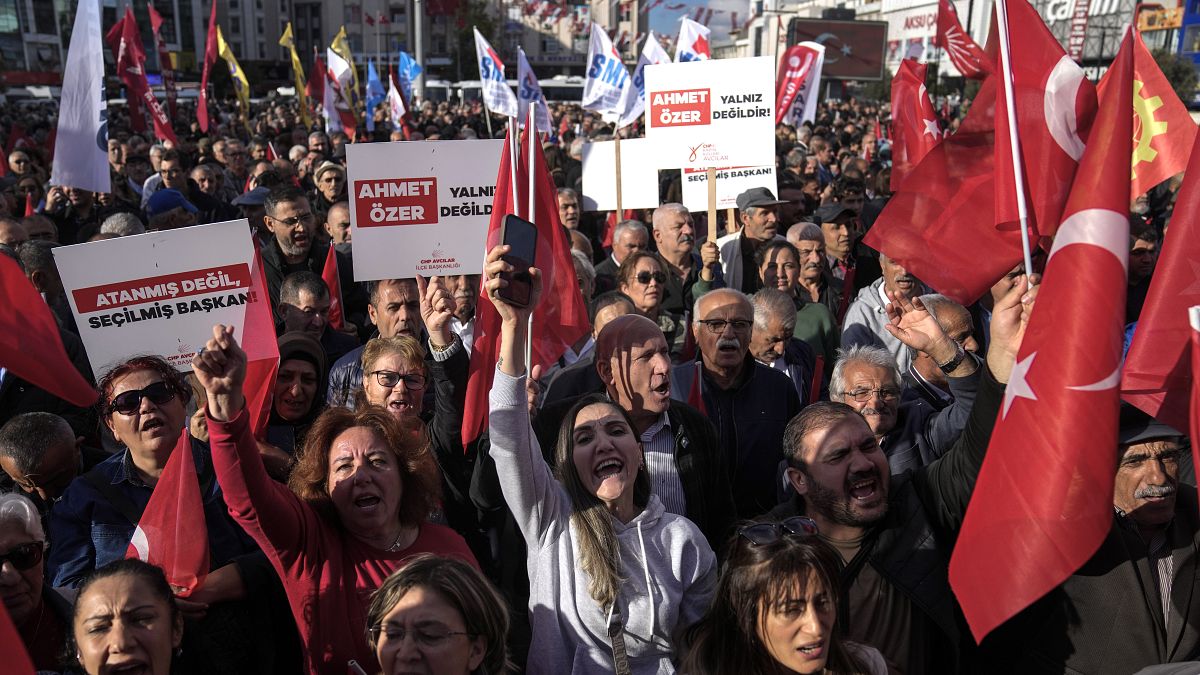Ahmet Özer, the mayor of Istanbul’s Esenyurt district and a member of the Republican People’s Party (CHP), was recently detained by anti-terrorist police over alleged connections to the Kurdistan Workers’ Party (PKK). This has sparked protests in Istanbul, with hundreds of people gathering to demonstrate against his arrest and removal from office. Özer was replaced by Istanbul’s deputy governor, a move that has been criticized by opposition leaders as a “coup.” Demonstrators in Esenyurt expressed their disapproval, calling for an elected mayor rather than an appointed one and demanding the resignation of President Recep Tayyip Erdoğan’s government.
64-year-old Özer, originally from Van in eastern Türkiye, had been elected as mayor of Esenyurt in the local elections held in March. The Istanbul Chief Public Prosecutor’s Office reported that an investigation revealed Özer had maintained contacts with PKK figures for over a decade. Following this revelation, his home, vehicle, and office were searched as part of the investigation. This comes in the aftermath of an attack on a Turkish defence company’s headquarters in Ankara, in which the PKK claimed responsibility for the loss of five lives.
The conflict between the PKK and the Turkish state, which has spanned four decades and resulted in tens of thousands of deaths, is a contentious issue in Türkiye. The PKK initially sought independence but later redirected its goals towards demanding political and cultural rights for Kurds within the country. Türkiye’s Western allies, including the US and EU, designate the PKK as a terrorist organization. The recent detaining of Özer has reignited debates about a potential peace process to end the longstanding conflict, as tensions remain high in the region.
The protests sparked by Özer’s arrest in Istanbul highlight the deep-rooted political divisions within the country. The opposition party, CHP, views his removal as a violation of the democratic process and an attempt by the government to consolidate power. The banners held during the demonstrations call for transparency and accountability in governance, emphasizing the importance of elected officials representing the will of the people. The unrest in Esenyurt reflects broader discontent with the current administration and its handling of the conflict with the PKK.
The arrest of a prominent opposition figure like Özer raises questions about political motivations behind the government’s actions. Critics of President Erdoğan’s administration see this incident as a tactic to suppress dissent and target political adversaries. The timing of Özer’s detention, following the attack in Ankara, adds complexity to the situation and raises concerns about the government’s response to security threats. As tensions escalate in the region, the need for dialogue and diplomacy to address the underlying issues becomes increasingly urgent.
In the midst of political turmoil and social unrest, finding a peaceful resolution to the conflict between the PKK and the Turkish state remains a pressing challenge. The international community plays a crucial role in facilitating dialogue and promoting a sustainable solution that respects the rights of all parties involved. As Türkiye navigates through this tumultuous period, the importance of upholding democratic principles and protecting individual freedoms cannot be understated. The case of Ahmet Özer serves as a poignant reminder of the fragility of democracy and the need for transparency and accountability in governance.










